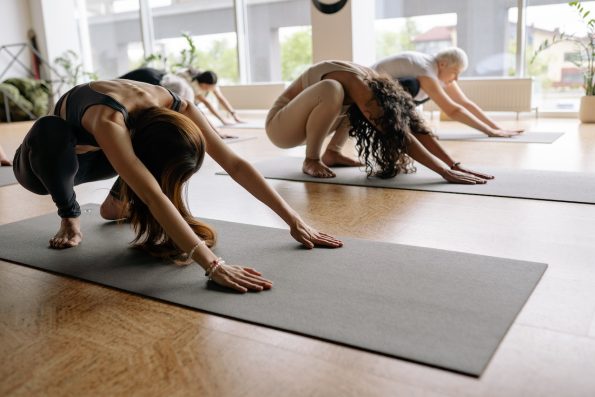Exercise plays a crucial role in achieving wellness and healthy skin. Let’s explore how collagen supplementation can enhance our exercise performance and aid in workout recovery. Whether you’re a seasoned athlete or just starting your fitness journey, incorporating collagen into your routine can provide incredible benefits. Let’s dive into the world and relationship of exercise and collagen for women.
Understanding Collagen And Its Role in the Body:
Collagen is a vital protein that forms the structural foundation of our connective tissues, including muscles, tendons, and ligaments. Unfortunately, as we age, collagen production for women naturally declines, which can impact our exercise performance and recovery. By supplementing with collagen, we can replenish and support these essential tissues, optimizing our fitness outcomes.
The Benefits of Collagen Supplementation for Exercise:
The benefits of incorporating collagen into your exercise regimen are truly remarkable. Not only can collagen enhance your exercise performance, but it also plays a vital role in supporting your body’s recovery process. From improved strength and endurance to faster muscle repair, collagen offers a range of advantages that can benefit women of all fitness levels.
Enhancing Exercise Performance
Research has shown that collagen supplementation can improve our exercise performance. Studies indicate that individuals who incorporate collagen into their routines experience enhanced strength, endurance, and flexibility. By supporting the integrity of our muscles and connective tissues, collagen helps us perform at our best.
Supporting Workout Recovery:
After an intense workout, our muscles need time to repair and recover. Collagen plays a key role in this process. It aids in muscle repair, reducing exercise-induced inflammation, and supporting joint health. By taking collagen supplements, we can promote faster recovery, reduce muscle soreness, and optimize our overall workout experience.

Collagen And Exercise For Women: Special Considerations:
But what about women? Our bodies go through unique changes due to hormonal fluctuations. These changes, especially during perimenopause and menopause, can impact our exercise performance. Collagen supplementation becomes even MORE valuable during these times, as it helps mitigate the effects of hormonal changes and supports our fitness goals. By incorporating collagen into our routines, we can navigate these transitions with greater ease.
Addressing Skin Health And Body Image:
Beyond its impact on exercise performance, collagen also plays a significant role in maintaining healthy skin elasticity and appearance. We understand, as women wanting quality health, the importance of feeling confident in our bodies. It’s important to many of us. Collagen supplementation can positively influence our body image and self-confidence by promoting healthy skin, reducing the appearance of cellulite, and supporting overall skin health.
How To Incorporate Collagen Into Your Exercise Routine:
Ready to supercharge your exercise routine with the power of collagen? Whether you’re a fitness enthusiast or just starting your fitness journey, incorporating collagen into your exercise routine can take your results to new heights. But how exactly can you seamlessly integrate collagen into your workouts? From choosing the right supplementation options to understanding the ideal timing and dosage, we’ve got you covered. Here are some practical tips and recommendations on how to incorporate collagen into your exercise routine effectively:
Collagen Supplementation Options:
When it comes to collagen supplementation, various options are available, such as powders, capsules, and liquids. It’s crucial to choose high-quality collagen products from reputable brands. Look for products that are sourced from grass-fed, pasture-raised animals and undergo rigorous testing to ensure purity and effectiveness.
Timing and Dosage Recommendations:
To maximize the benefits of collagen, consider the timing and dosage. Taking collagen before a workout can provide an extra boost of support to your muscles and connective tissues. Aim for a daily dosage of around 10 grams of collagen peptides, as recommended by experts. Mix it with your favorite beverage or incorporate it into smoothies and recipes for easy consumption.
Frequently Asked Questions About Collagen And Exercise:
1. Can I exercise while taking collagen?
Absolutely! Collagen supplementation complements exercise and can be safely incorporated into your fitness routine. In fact, collagen can enhance your exercise outcomes by supporting muscle and connective tissue health.
2. Do you need collagen when working out?
While collagen is not a necessity for working out, incorporating it into your routine can provide additional benefits. It supports the integrity of your muscles, tendons, and ligaments, helping you perform better and recover faster.
3. Why take collagen before a workout?
Taking collagen before a workout allows your body to absorb and utilize collagen peptides during exercise. This can provide extra support to your muscles, enhance performance, and aid in preventing exercise-related injuries.
4. Does collagen affect muscle growth?
Collagen primarily supports muscle health and recovery rather than directly influencing muscle growth. However, by ensuring optimal muscle health and reducing inflammation, collagen indirectly creates a favorable environment for muscle growth and development.
Collagen: Your Sidekick in the Pursuit of Fitness
Prioritizing exercise and wellness is essential. By incorporating collagen supplementation into our fitness routines, we can enhance our exercise performance, support workout recovery, and promote overall well-being. I have to remind myself that collagen is not just a trend, it’s a valuable tool for active women like us.











